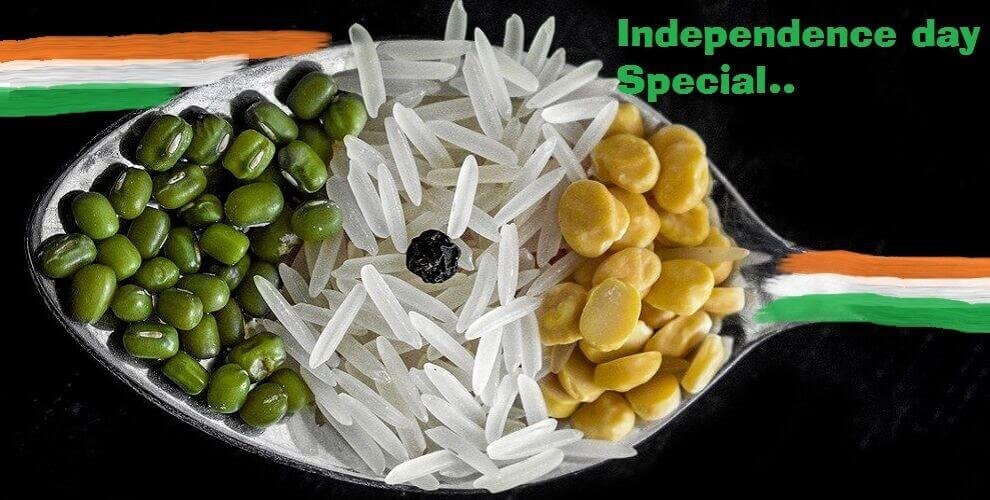Indian agriculture has advanced rapidly in the last 75 years. Last season, foodgrains production increased to a record 308.65 million tonnes, up from a meagre 55 million tonnes the previous season (July 2020-June 2021). Since independence, the production of pulses, coarse cereals, natural fibres, sugarcane, vegetables, and fruits has increased dramatically.
Foodgrain was in short supply in India during the 1960s. The Green Revolution arrived, and by 2010, the country was self-sufficient in foodgrain. Things have progressed to the point where India is now among the top ten agricultural product exporters.
However, these achievements are insignificant when compared to the developments that are taking place in the sector, most of which are occurring under the radar.
It is now ready to take off in such a way that roll back migration to rural areas should not be surprising. There are numerous indications that the process has just started.
Also Read: Commission Reco and Policy Attention to Improving Farmers’ Income
Increasing farmer wealth
The Green Revolution of the 1960s caused numerous problems, with many arable lands becoming alkaline or saline.
Soil fertility has suffered, groundwater levels have dropped significantly, and new pests and diseases have emerged. India has introduced genetically modified (GM) crops in the form of Bt (Bacillus thuringiensis) cotton but has not made progress any further with the introduction of consumable crops like brinjal, which is being opposed tooth and nail.
According to a report by the Committee on ‘Doubling farmers income‘ despite the increase in production, 22.5 percent of the country’s farmers are unemployed below the poverty line (BPL).
As per the report, ‘land is a powerful asset, and that such an asset-owning class of citizens has remained poor is a paradox.’ In a nutshell, this is the BG for the Centre to consider doubling farmers’ income by 2022.
The new farm laws passed by Parliament last year were one of the Centre’s efforts to help farmers improve their income. The laws, which have now been stayed by the Supreme Court, were intended to allow farmers to sell their produce to anyone in the county, enter into contract farming, and sell to traders without being restricted by the Essential Commodities Act.
Some farmers in the country are opposed to it, but those involved in working with growers insist that the new laws are necessary if farmers are to be free of the clutches of vested interests and traders.
Opportunities for young business minsets
Agriculture is now viewed as a rising sector by start-ups, with agricultural technology firms seeing enormous potential in playing a significant role in its development. Together, these have begun to attract the necessary investment in the sector, which will be the key driver in the days ahead.
Precision farming is a key development in the Indian agriculture sector. Several startups have shown interest in this field, which now focuses on how farmers should grow their crops.
These companies primarily use apps to communicate with farmers about the best time to plant, irrigate, and apply nutrients or fertilisers to their crops. Farmers are now being notified at least 15 days in advance by a couple of companies.
Then there are startups and even established players that provide guidance to farmers while their crop is on the field, crop protection, harvest and post-harvest. Machine learning (ML) and the Internet of Things (IoT) have been introduced. By snapping a photograph of a plant’s leaf which a farmer suspects to have been infected, ML and IoT can provide pretty much the entire information on the problem and how to handle it.
Also Read: Farmers can now get benefited from free precision farming advice from remote sensing
A few other start-ups are now using technology to inform growers about the quantity of their crop and the price it could fetch. Some companies are now offering services at the farm gate, such as storing crops or preserving them in cold rooms that can be ready in a matter of hours. A few start-ups have now established infrastructure and cold chain links, including transportation, to assist farm products in reaching our doorsteps.
Many people are unaware of the amount of activity that occurs in the back end and backyards. India may be a few years behind start-ups in agricultural technology, but thanks to the start-ups and their funding managers, farmers are now starting to see how technology can change their lives.
There have already been reports of how the younger generation in the IT field is becoming interested in agriculture and making good profits through the use of technology. This is just the beginning, and more cards are being played as the trend accelerates.



















Add Comment